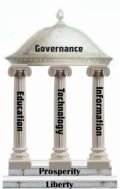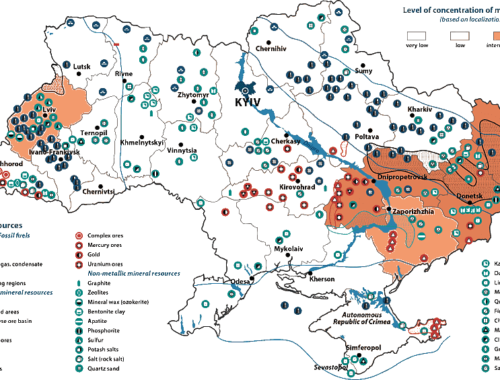
Artificial Language/Machine Learning and Society
There are at least three aspects of Artificial Intelligence/Machine Learning (AI/ML) that we need to consider from a policy perspective. Of these, jobs have the potential to upset social stability the most, especially with the significant mass immigration of low-skilled/non-skilled people into modern western societies. As society sheds jobs to AI/ML, social stability could fall and endanger societies in a way we have not seen since the Great Depression and its breadlines. Perhaps effective policies and programs, based upon a revitalized education and culture, can mitigate these effects.
The first trust is covered rather well. Essentially, AI/ML can create realistic images, videos, and documents. This cause people to either doubt everything or be easily duped. Simply put, without trust in information sources, citizens cannot make rational, informed choices. Can there be a free republic under these conditions?
The second is cohesion. We are developing a polarized and split society. Extreme ideas tend to pull people away from the center. Created artifacts can exacerbate this trend and divide society even further.
The third, and perhaps the least discussed, are jobs.We’ve been shedding jobs for over 50 years through exporting them overseas or replacing them with automation and robotics. In 2020, Forbes reported the US lost over 20 million jobs to automation. Each time the minimum wage goes up, we lose jobs to further automation, such as self-checkout and self-ordering at fast-food restaurants and the ubiquitous automated telephone systems. But AI/ML promises a whole level of job reductions, to include white-collar jobs that were previously not subject to automation. In 2023, Goldman Sachs reports that 300 million jobs could be lost to AI. Earlier this year, https://techjury.net/blog/jobs-lost-to-automation-statistics/TechJury reported:
- 73 million jobs in the US are projected to be lost to automation in 2030.
- Over 82% of basic restaurant jobs are at risk of being fully automated.
- China has the highest number of robots, with about 14 million as of 2023.
- 30% of “boring” and repetitive jobs will be replaced by automation.
- 1.5 million people in England are at high risk of losing jobs to automation.
- By 2030, 375 million jobs worldwide will be at risk.
- 14 to 80 million US jobs are at risk of being automated.
- Automation is predicted to displace 20 million manufacturing jobs by 2030.
- 36 million workers were estimated to lose jobs because of AI.
I suspect that estimate will rise as AI/ML becomes increasingly sophisticated and powerful. Yet, there is the briefest mention and discussion on this trend. Most of what we see is the truth and cohesion concerns, but the jobs concerns could both be far more significant and exacerbate the other two issues.
A growing unemployed population with few prospects for the future is dangerous. The growing, toxic debt and economic and security threats posed by China, Russia, and other further complicate the situation and add risk.
Without anticipatory policies and programs in place and a significant change in culture and education, these job losses could cause immense stress within society and threaten stability throughout the world. This is especially true with the massive explosion of uncontrolled illegal migration of unskilled people. There are three key dimensions to these policies, programs, and efforts.
Education
While we are teaching how to use AI/ML in our schools, I am not sure they teach the implications and potential negative aspects of AI/ML. This, coupled with a dearth or critical thinking in our educational programs and low job skills, increases the risks of social instability. We need serious education reform that stops political indoctrination and teaches critical thinking, citizenship, and key job skills for the 21st century economy. Interestingly, Battelle’s P21 page that discussed this effort is no longer available. The economic environment is likely to be far more complex than the P21 initiative originally conceived. If we do not fix our education now, social stability could crumble as a huge jobless population with few marketable skills grows.
I have seen some speculation that if the inner cities were removed from the US education score, the US would be in the top five countries in the world’s education rankings. The social justice movement wants us to believe the poor inner city performance is because of “underserved” populations. But when we look closely, much of the inner city school budget gets diverted to security and bloated bureaucracies that do little to teach. We also see rampant absenteeism, crime, and tragically low performance. I suspect the issues are as much cultural as being “underserved”. But we almost never see the cultural component of education addressed.
Culture
American culture has shifted a great deal since the 1960s. At one time, the culture embraced liberty, individualism, and solving problems at the lowest levels. With the rise of huge government, the culture shifted as well. The culture now downplays individual responsibility and celebrates the power of the central government to solve most problems. Increasingly, issues are addressed by federal bureaucrats with federal funding. Our culture needs to emphasize a strong education and return to valuing liberty, individual responsibility, and solving problems at the lowest level possible.
So, how does this relate to AI/ML and jobs? First, education is critical to nurture a competitive workforce that can adapt to rapid changes. Second, citizens need to understand the policy implications of AI/ML and get involved with them, rather than trusting faceless central bureaucrats to set them.
Government
The exploding toxic debt loads and unaccountable bureaucracy make addressing the AI/ML problem difficult. We clearly cannot ignore AI/ML because other states will embrace it and use it against us. Therefore, we need policies that:
- Govern its use and application.
- Nurture informed citizens with access to factual information and the critical thinking skills to assess it.
- Rich educational experiences that prepare citizens to compete and thrive in a world with AI/ML.
If we cannot address these challenges, AI/ML could unleash a torrent of unemployed and unemployable citizens that either threaten the commonwealth or back the continued growth of central government, and programs that guarantee income through either government payments or increasingly large central workforces. Neither bode well for a free republic.





